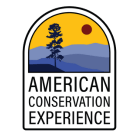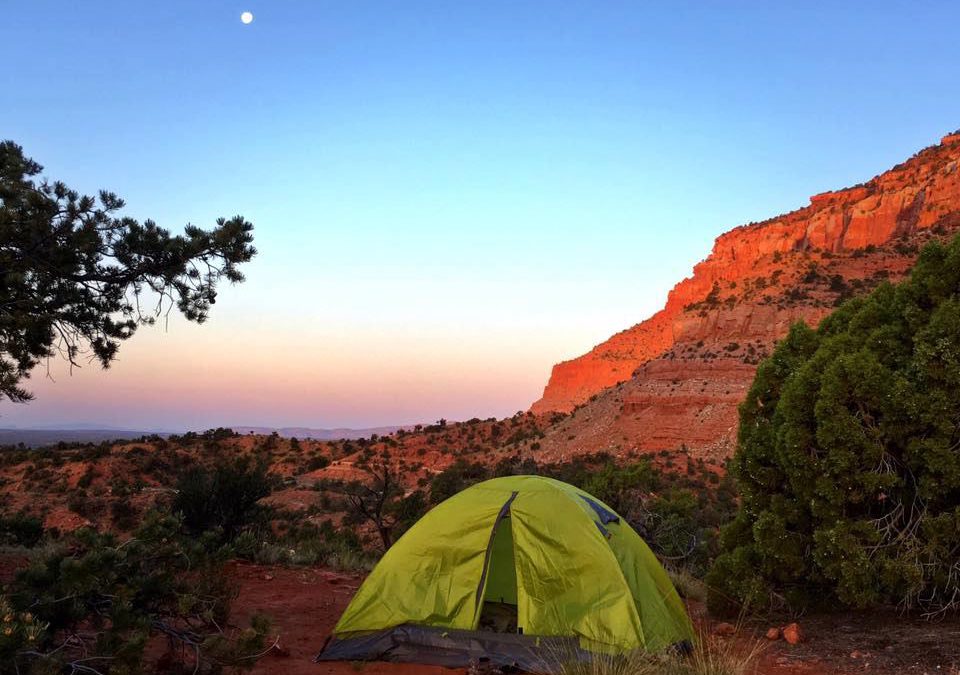Written by ACE member: Maggie Weaver
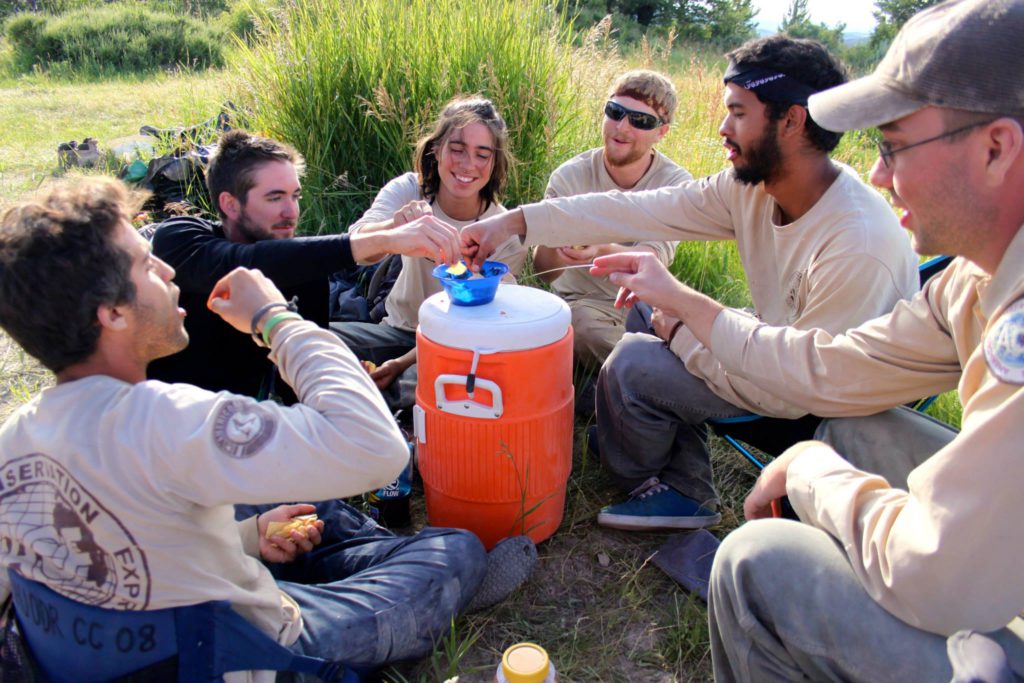
After having been in ACE for almost six months now, it’s hard to believe that my most recent hitch was the first time any of my crews implemented the Rose, Bud, Thorn activity. “I suggested it because it’s a good way to get to know people better and to gauge how everyone is doing overall,” Southwest crewmate Mary Rosa told me after she proposed the activity to our group one night at dinner. A thought provoking exercise, Rose, Bud, Thorn is normally played in team settings to promote reflection and to foster both individual and group connections. Each person on the team goes around and shares their “rose” (a positive aspect/highlight), “bud” (something they look forward to), and “thorn” (a lower point/ less positive experience) for the day. But learning group members’ impressions is not the only flower garden that can be cultivated through this activity. Here’s a look into the roses, buds, and thorns of ACE camp life.
Roses
“It all began with someone just playing music and a few people dancing. Then everyone else joined in and people were requesting songs and getting into it and having a desert dance party! It was super fun and great bonding for our crew”. (Karley Belanger, Southwest Crewmember)
For me, the words “tool up” are exciting to hear not just because they mark the end of a long hard day of physically intensive work, but also because they mark the start of a relaxing evening with my crewmates. Often, camp life activities encompass both alone time to decompress (such as reading a book, journaling, sketching, hiking nearby trails, napping, or listening to a podcast) and group games. Through my time in ACE, I have found that there are so many creative ways to stay occupied in the woods. There is no typical post-work camp life routine—while waiting for dinner I’ve done everything from feeding my crewmates dishwasher flavored jelly beans in “Beanboozled” blind bean taste tests, to experimenting with silhouette pictures against the sunset, to collaborative hair braiding sessions, to group yoga, to random two-hour country music singalongs. After dinner, it’s a common ACE pastime to play cards or another type of game. Some of my crew’s favorites are the word guessing game “Contact;” social deduction games like the board game “One Night Ultimate Werewolf” or the app “Out of the Loop;” and the eclectic, all-in-one game “Fishbowl,” which combines pictionary, taboo, and charades.
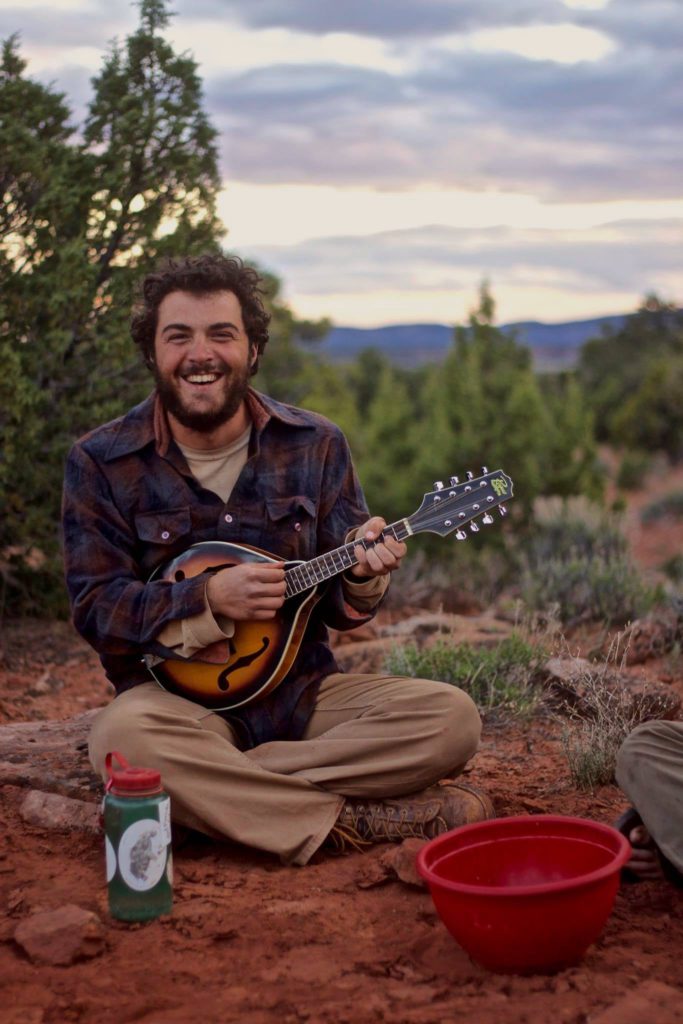
“You see life when you’re outside: the sky, the mountains, the skunks… and feel the wind and sun. If we were in houses, it would be enclosed and people would probably stay in more since it’s more comfortable and safe.” (Chris Orozco-Fletcher, Southwest Crewmember and Assistant Team Lead)
My first hitch with ACE I remember feeling very confused—almost frustrated—about our camping situation. We were thinning the forests of local hiking trails, yet, even though we were about a 15 minute drive from our housing unit we still had to camp. It wasn’t that I didn’t like camping. Rather, it was that after a long day of chainsaw work, it only seemed logical to be able to come home to shower the layers of dust, dirt, and sticky sap off, and then to crawl into my own nearby bed. Going back through old journals, however, that same hitch I wrote about “seas of skinny pine trees bending and swaying in the breeze”, the way the sun “hit the brown fallen pine needles and coated the forest floor in a golden blanket”, and about “the tips of the pine trees pressing gently into the sky’s sunsetted palette”. These entries reminded me that one of my favorite parts about post-work camplife is the time I get to myself to unwind alone in nature. No matter what it is—hiking the Sunset trail near Schultz Pass, reading a book on a burly Coconino Forest rock, watching cows graze at golden hour by the Schultz Tank lake, or observing road runners scamper along the gravelly Lake Meredith shoreline—camp life after an ACE workday allows for an intimacy with the environment that always seems to make wearing the same dirt-caked shirts, day after day with no showers, worth it.
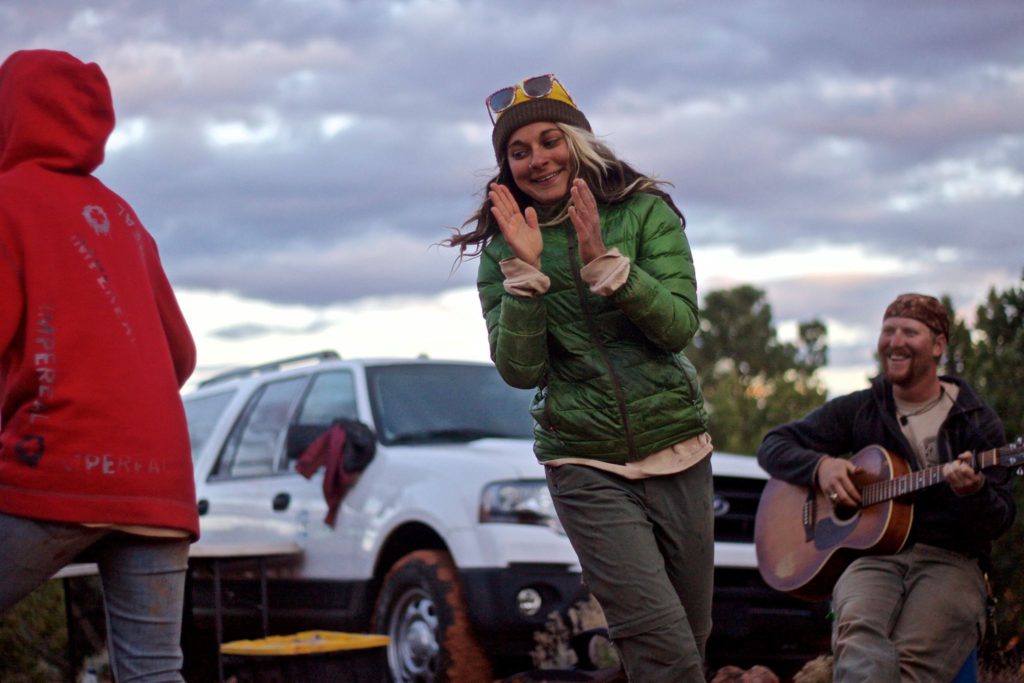
Q + A with ACE Members
Q: What are some favorite moments or memories from camp life on hitch?
A: “Camp Life” at ACE usually brings to mind the end of the workday – sweet relaxation after a job well done- taking off your boots, sharing a laugh with the crew, and watching the sun melt down to the desert floor while the aroma of dinner drifts over from the camp stove. Evening camp life is as good as it gets, but the start of the day has its own power at ACE. Many of my best memories of camp life happened in the first hour of the new day when the air was still cold and crisp. A quiet breakfast and a spirited safety circle were fundamental to my mornings at ACE. I started off every day with a laugh when I worked in invasive species removal in Moab, Zion, and Canyonlands. I enjoyed visualizing the day with my team every morning. I cracked up listening to my friends quote David Attenborough as we assessed the weather while we gathered our gear. I liked mapping out our daily plan of attack against Russian Thistle, Ripgut Brome, and Tamarisk, and loved marching out to the beautiful job site of the day every day, yes, even as the joy of dinner and sunset was already on my mind. (Matthew Pugliese, Mountain West Crewmember)
A: Camp in the evenings was a safe space filled with dirty smiles, overalls, and a bowl full of chili mac. It was a time for reading a good book in your hammock, sitting around the fire telling stories with the crew, or somehow finding the energy to hike a mountain. Somewhere along the way, hanging your freshly washed dishes in a tree became the norm. (Crew leader and crewmember Jordan Heron)
Buds
“It was a chance to take a break from reality and get to know yourself and your crew. The seven other dirty humans became family in just eight short days.” (Crew leader and crewmember Jordan Heron)
A strong bond with nature is not the only reason camplife is so essential to the ACE experience. It also builds a strong sense of community amongst a crew, allowing people to get to know each other in a way they might not get to accomplish otherwise. “When you are camping there is a lot more opportunity for growth and for team building. Living with each other past the work day makes it easier to understand each other, and to recognize if someone needs help,” says Southwest Crewmember and Assistant Team Lead Brooke Folk. “In my experience, camp life allows the crew to get more comfortable with each other so that working together is easier. There’s a sense of community with the shared experience of camping in the woods for 8 days and being super dirty,” adds crewmember and assistant team lead Kaleigh Keohane.
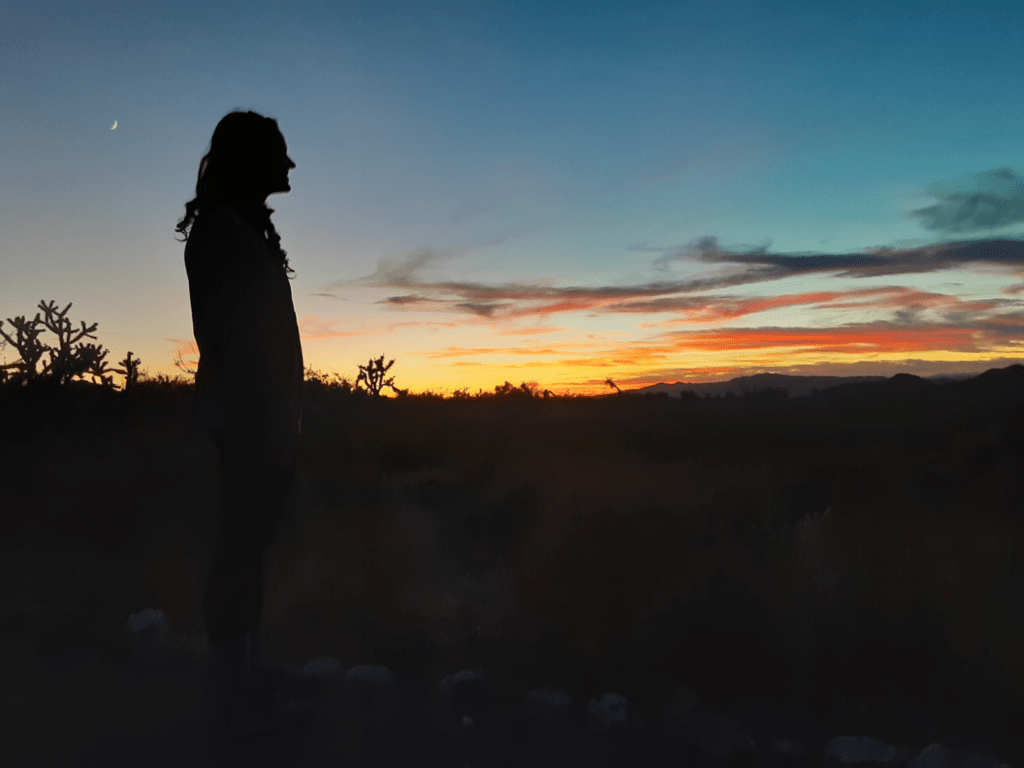
While there are opportunities during the work day to get to know each other, depending on the project this can be hard sometimes according to two Southwest crewmembers, Ashlyn Lythgoe and Lynae Bresser. “With trail work most of the day we often split into smaller groups and stayed separated for most of the day, so it was nice to be able to come back together as a whole group at camp afterwards,” Ashlyn told me. Lynae added that “a lot of the work I have done recently on hitches requires a lot of non-verbal communication, especially with chainsaw work. Camp life gives me that extra time at the end of the day to get to really have conversations with people, and thus makes the next workday easier to work as a team.”
Q + A with ACE Members
Q: How would ACE camp life be different without camping (i.e., if we were to stay in housing on hitches)?
A: Camping at the worksite really makes you gain an appreciation for the space. You get to know, and feel more connected to, the work you are doing as opposed to if you went home at the end of the day. (Lynae Bresser, Southwest Crewmember)
A: I think camplife is a vital part of conservation organizations. It allows one to see what is beyond the walls of a house. I’ve found that being outside gives me more clarity and positivity, and in this organization you can have a better ability to not just work with, but also learn about, the people and awesome experiences people have had. (Chris Orozco-Fletcher, Southwest Crewmember and Assistant Team Lead)
A: I think the natural side of ACE would be different without camp life. Part of the experience is getting comfortable with working and living in the outdoors, and if you take away the living half, it’s like working outdoors but not connecting to the lifestyle as much. (Jordan Ungiechajer, Southwest Crewmember)
A: Camp life gives me more of a sense of community, because it encourages me to hold myself accountable to my crewmates. I know that we all have a common mission in being together as a conservation team, and that we have clear routines when it comes to doing chores and helping each other out after work. Without camp life, I would not feel as integrated with or connected to the rest of the group. (Jack Angelone, Southwest Crewmember)
Thorns
Often, the thorns of ACE camp life are individual experiences that vary from person to person. I’ve had my share of “lows” during camp life, from not packing adequate layers for the colder weather to losing one of my contacts after trying to put it in without a mirror at the campsite. A common low is not being able to sleep well after transitioning from a cozy bed during off days to a less cozy tent with a sleeping pad during hitch. On my last hitch, there were so many cholla cacti that a couple of my crewmates’ inflatable sleeping pads were punctured, which, needless to say, was not a great moment for them. Another low that camp life can create is that even though we all live with each other 24-7, obviously nobody can be at their best state 100 % of the time, which is why sustaining a positive mental attitude for as long as possible is such an emphasized part of ACE camp life. “Group dynamics and people’s mental attitudes definitely contribute to my viewpoint of the hitch as a whole. If one person is not in a great mood at camp then this can affect the whole team and their attitude about the work days,” notes crewmember Jack Angelone. However, this section is short for a reason: even though there can be many potential thorns depending on the hitch, a lot of times the roses and buds that crewmembers experience together make the thorns more bearable. They allow for commiseration, and in turn bonding, all of which bolster the family unit and sense of community that ACE camp life cultivates.

Photos by: Toula Papadopoulos, Danny Park, Katie Mendiola, Maggie Weaver
